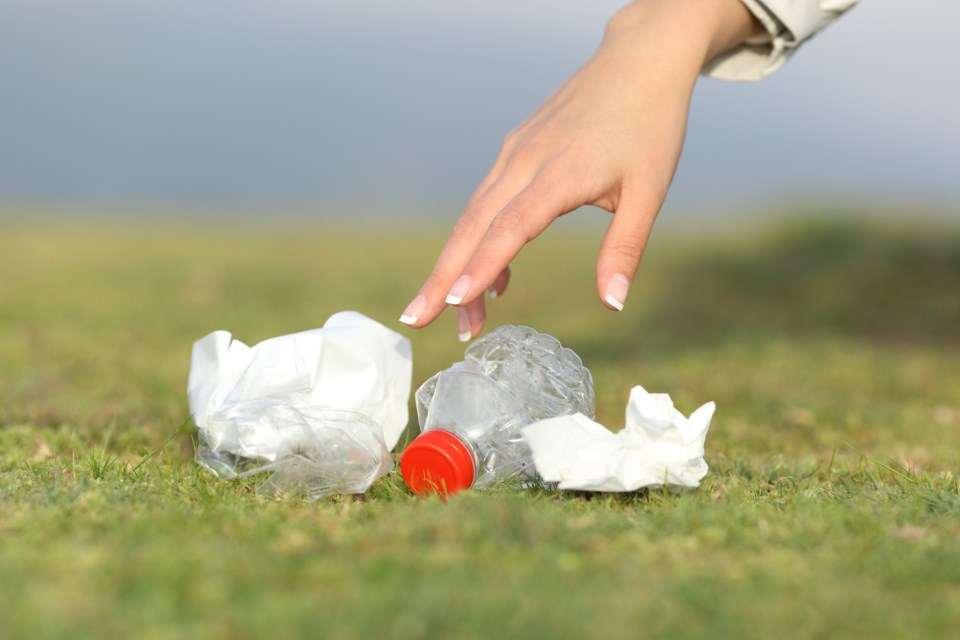NEWS RELEASE
TOWN OF COLLINGWOOD
*************************
The Town of Collingwood is known for its environmentally progressive thinking, and attachment to the water we live, work, and play beside. In a continued effort to protect the water of Georgian Bay that is so important to Collingwood, the Town has partnered with Georgian Bay Forever (GBF) to install 11 litter trapping devices, using two different technologies. seabins and gutter bins will not only collect litter such as plastic that would end up polluting the water, but this diversion program also ensures that the litter will be analyzed to provide data to you and authorities so that action can be taken to stop the most major litter types at source.
Plastic pollution is a real risk to Collingwood shorelines. Not only is this litter ugly to look at in our water and on our shorelines, but plastic does not biodegrade – it just breaks down into smaller and micro pieces that persist in the environment and are a risk to wildlife through ingestion.
What and where are these litter trapping technologies?
Three seabins have been installed in Collingwood Harbour thanks to the partnership of Georgian Bay Forever, the Town of Collingwood, and the Great Lakes Plastic Cleanup. Seabins are floating trash bins that collect floating debris and microplastics as small as 2 millimetres. They were invented by Australian surfers appalled at the amount of plastic pollution in the ocean. Just one Seabin can collect upward of 3.9 kilograms of debris in a day, filtering as much as 1.4 tons of trash in one year.
How does it work? Attached to a floating dock and powered by 110/22V submersible pump, a seabin sucks water down and through a catch bag located inside a drum. The seabin moves up and down with the natural flow of water, collecting floating debris and allowing safe operation in a variety of conditions.
Educational signage about seabins and the plastics crisis in our water systems will be installed at the promenade and Harbourlands Park for the public to learn more about this innovative environmental project.
Gutter bins capture pollutants and organic materials 6 mm and larger at storm drain openings in a specially designed “Mundus Bag.” Collingwood will be the first municipality to pilot and use gutter bins in Canada! During precipitation events, stormwater that includes litter/pollutants from our residential and street surfaces runs off into the gutter and into drains on our streets that outflow into bodies of water like Georgian Bay. The Mundus Bag captures the run-off materials until the bag becomes completely full, but still allows water to drain through to ensure that there is no flooding.
There will be eight gutter bins installed in Collingwood, four on Hurontario Street and four on Second Street and Pine Street. These gutter bins were brought to Collingwood through the partnership of Georgian Bay Forever, the Town of Collingwood and Frog Creek Partners of Casper Wyoming.
Accompanying these gutter bins later in the summer, will be a painted QR code that if you use your smartphone, will direct you to more information about the mechanics of gutter bins and information about the litter that will be collected.
Ways residents can help the program to mitigate plastic pollution in Collingwood:
- Volunteer to characterize the litter that is captured. Understanding what biggest sources of litter are, and being able to quantify and communicate that to policy holders, helps the litter get stopped at source. GBF needs your help to separate and record the captured litter from the three Seabins and eight Gutter Bins Email [email protected] to get details.
- 300 washing machine filters will be installed on Collingwood volunteer household washing machines to stop microwaste (plastics, fibres) from entering the water. There are still opportunities to volunteer; to see if you qualify, please contact [email protected]
- Find ways to reduce lightly-used plastic in your own household or in local businesses by emailing [email protected].
- Discover more about the Town of Collingwood’s green initiatives here
- Plastic litter can be carried to our storm drains by rainfall.
- Lightweight plastics can be carried to our waterways by the wind.
- Litter left on beaches and shorelines as well as litter thrown or blown overboard while boating.
- Polystyrene breaks down and wears off of dock floats and buoys.
- Plastic microfibers from clothing enter through washing machine wastewater.
- Microplastics in the Great Lakes are at concentrations as high as the ocean (even the “Great Pacific Garbage Patch”)
- Many species of fish and wildlife are recorded as ingesting microplastics.
- Microfibres are a common type of microplastics in the Great Lakes.
- Microplastics/fibres have been found in bottled water, salt, beer, and can even be seen floating in the air!
Partners in Clean Water
Georgian Bay Forever is a charity solely dedicated to protecting your water through scientific research and public education on Georgian Bay's aquatic ecosystem. Their mission is to protect, enhance, and restore the aquatic ecosystem of Georgian Bay. If you are interested in learning more about this project or supporting their water protection work, please call Georgian Bay Forever at 905-880-4945.
*************************
